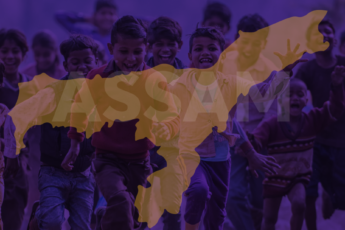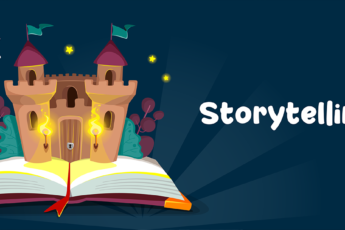Role of EdTech in Enabling Foundational Literacy and Numeracy
The impact of technology is being felt across the education sector. With an ever-increasing need for literacy and numeracy skills required to succeed in today’s society, educators are looking for new ways to address this challenge. As a result, not only has online learning become the de-facto standard for education but it is also accompanied by massive changes in how we look at and interact with educational content, information and services. In fact, the NEP 2020 places technology at the core of its purpose: it underscores India’s need to move from a teacher-centric, textbook-based pedagogy to a student-centric inquiry, problem-based learning approach.
🖊️ The Need for Building Foundational Literacy and Numeracy
The impact of technology is being felt across the education sector.
With an ever-increasing need for literacy and numeracy skills required to succeed in today’s society, educators are looking for new ways to address this challenge. As a result, not only has online learning become the de-facto standard for education but it is also accompanied by massive changes in how we look at and interact with educational content, information and services. In fact, the NEP 2020 places technology at the core of its purpose: it underscores India’s need to move from a teacher-centric, textbook-based pedagogy to a student-centric inquiry, problem-based learning approach.
🖊️ The Need for Building Foundational Literacy and Numeracy
The world needs individuals skilled at reading, writing and arithmetics – the three R’s – as these are essential for success in any field of study or career path. The fact that millennials are becoming parents, they should pay close attention to ensure that their children receive a solid foundation. These need to be inculcated from an early age so that they can succeed later in life. The last two years have witnessed a flurry of activity from teachers, parents, and students in low-income families to find innovative ways to share the power of learning and reading between individuals that can’t physically be together.
While it can be argued that this technology is not necessarily replacing teachers, it is undoubtedly changing how they teach. The percentage of rural households owning Internet-compatible devices has steadily increased by 31% over the last 4 years, reaching 68%.
Edtech has made it possible for students to access their teachers through the internet and communicate with them in real-time. Additionally, students can access lectures and recordings on their mobile devices or tablets. It has also revolutionized teaching methods by incorporating technology into classrooms, such as interactive whiteboards, tablets, laptops and other technologies. These have helped improve student performance by making their learning more relevant, flexible and engaging.
Here are some of the ways edtech is enabling foundational literacy and numeracy skills in children:
🖊️ Helping Kids Develop Early Reading Skills
Research shows that early reading skills are critical to future success in school and beyond. To help children develop these skills at an early age, many apps feature interactive stories with highlighted text and voice narration so kids can hear the story instead of having to read it themselves. These features make it easier for kids to follow along with each sentence as they listen to the narrator read aloud from within the app. Some apps also have built-in quizzes that test your child’s understanding of what they just listened to — another excellent way for kids to practice their new reading abilities!
🖊️ Providing Direct Instruction in Phonics and Spelling
When students are given explicit instruction in phonics and spelling rules, they learn these skills much faster compared to when they are left to figure things out independently. Many edtech programs provide interactive games and activities that teach students basic spelling rules by reinforcing correct letter combinations as they practice writing words over time. They also often include quizzes that allow teachers to assess how well students understand these rules so they can adjust their instructions accordingly.
🖊️ Teaching Reading Comprehension
Reading comprehension is perhaps the most crucial skill for all students to develop, but it can be incredibly challenging for those who have been out of school for several years or who have learning disabilities that make it difficult for them to decode words on sight. Edtech tools like read-aloud programs, online text-to-speech software, and interactive storybook apps can help struggling readers work on their comprehension skills by reading aloud to them while they follow along with a book or watch the words appear on screen as they read aloud.
🖊️ The Use of EdTech in Schools
When children are exposed to educational apps, they are allowed to explore, interact and learn in different ways than they otherwise might have. The devices keep them engaged through various interactive games, puzzles and quizzes. This helps young learners develop their problem-solving skills, critical thinking abilities and their sense of wonder. In addition, educational apps offer a way for students to practice the foundational skills of literacy and numeracy outside the classroom.
Some teachers create lesson plans incorporating educational apps into the classroom, while others rely on the devices as supplemental tools. With newer devices like augmented reality glasses, students can experience learning in new ways that let them discover new concepts through hands-on experiences. Educational apps can be used with an inexpensive tablet or smartphone at home or in the classroom. They provide another way for parents to help their children develop foundational skills in a fun way.
As a pedagogy-driven organization, we at Square Panda India are constantly in pursuit of improvements and betterment for the future of early education. In order to maintain a high level of professional expertise, we focus on research, technology, training institutes, and best practices to cater to the demands of the changing educational environment in India.
The first edition of Square Panda India’s ‘Pencil Power Report’ (PPR), the brainchild of Ashish Jhalani, President International Markets at Square Panda, was released ahead of Children’s Day. Some of the country’s top minds were brought together to outline a future course for ECCE in India. “The report symbolises hope and recognises that we have a very progressive government, capable of hardcore implementation,” quotes Ashish Jhalani.




Leave a Comment